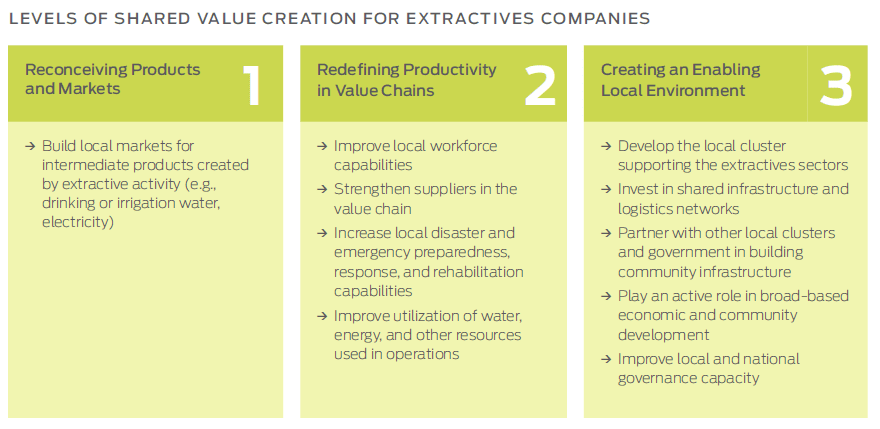Given their size, scale, and footprint, extractives companies have tremendous opportunity to generate societal benefits. Yet the huge economic output of the extractives sector, valued at $3.5 trillion in 2012, has not always translated into improved societal outcomes for host countries and communities. At the same time, companies are losing billions of dollars a year to community strife. This report points towards a better future through shared value.
Top Takeaways
- Companies in the sectors already are pursuing shared value opportunities, and in doing so creating millions of dollars of value. For example, BHP Billiton has saved $121M by investing in local suppliers in Chile, and Pacific Rubiales is saving $400M by repurposing water used in its processes for agricultural use.
- To identify and execute shared value strategies consistently, however, a deeper intentionality within each company—and a roadmap to help prioritize investments—is needed.
- Four challenges to broader shared value adoption exist: inadequate organizational structures and behaviors, incomplete measurement of costs and benefits, low motivation for collaboration, and lack of alignment with government. Yet as technical expertise becomes less and less of a differentiator, companies must overcome those challenges to create shared value and seize the next competitive advantage.




